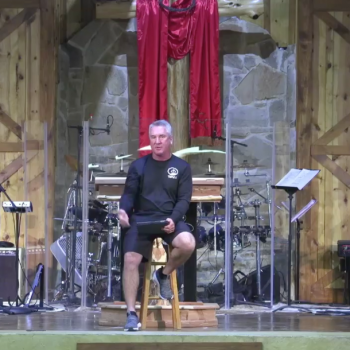It’s an extremely sad reality and nobody wants to think about it, but it can’t be avoided: Sometimes children get life-threateningly sick. Sometimes they get too sick to recover. And sometimes those illnesses can cause relentless and terrible suffering, sometimes even more than can be alleviated with palliative care.
Adults who are terminally ill but otherwise mentally competent have the option of choosing medically-assisted dying. But a child with the identical condition and prognosis is usually out of luck.
The Netherlands is poised to change that.

The Dutch government has approved a change to their legal framework that will allow medically-assisted dying for children ages 12 and under, with regulations currently being drafted by Health Minister Hugo de Jong. These regulations are expected to come into effect by early 2021.
Current Dutch laws allow minors above age 12 to access medically-assisted dying if both they and their parents consent. Infants under the age of one may also be given medical assistance in dying for compassionate reasons with parental consent. These circumstances also require medical professionals to agree that the procedure is necessary and those involved are competent to consent, as in adult cases.
But de Jonge notes that no law exists to deal with children in between those ages who “are suffering hopelessly and unbearably and will die within the foreseeable future,” and doctors have no way to act on behalf of these children suffering without hope of cure.
Existing Dutch laws around medically-assisted dying won’t have to change, de Jonge adds. Rather, he proposes an exemption from prosecution for doctors who carry out medically-approved and -indicated procedures to end the life of a terminally-ill child.
In practical terms, the change would impact very few children — roughly five to ten per year. But the impact of the change on suffering individuals and families would be massive. It would mean that children who are going to die anyway do not have to suffer through long, lingering deaths, and it means families already bearing the most horrific sort of loss will at least be spared the ordeal of watching it play out slowly and painfully.
Surprising no one, Christian activist groups and political parties object to the possibility.
The Christian Union (ChristenUnie) Party says that it rejects what it calls “child euthanasia,” preferring to opt for palliative sedation that allows children to slip into unconsciousness to avoid a painful death.
That’s more compassionate than nothing, but it still leaves loved ones in suspended animation as a dying child hovers between life and death, unable to begin processing their grief. It’s also not always an option, admits Christian Union MP Carla Dik-Faber:
The question that now arises is where the line lies between palliative sedation and active termination of life and what happens to children for whom sedation is not a solution.
It seems that, in a gray area such as this, the best course of action is to let individuals and families work with medical professionals to decide where the line lies according to their own beliefs, rather than codifying the answer in law. That’s what the new regulations would permit.
The idea of child euthanasia is not new, and the Netherlands is not the first country to make it legal. In 2014, Belgium passed a bill allowing medically-assisted dying for terminally-ill children at any age.
They, too, faced opposition from church leaders and religious busybodies.
And on some level, I get it. The idea of a child, so new to the world and so full of potential, being sick enough to desire death… it’s not pretty. In fact, it’s devastating. It’s the kind of cosmic injustice that makes atheists out of true believers, and leaves even the devout demanding answers of their god. Faced with something like this, recoiling in horror is the most natural and understandable emotional response in the world.
But when you’re done recoiling in horror, the reality of the suffering child still exists, and it needs to be faced.
Given Christianity’s nasty track record of elevating the nobility of somebody else’s suffering rather than showing compassion for it, those basing their opposition to these regulations on their faith are the last people I want to see making this decision for anybody’s child.
(Image via Shutterstock)




It’s Moving Day for the Friendly ..."
It’s Moving Day for the Friendly ..."
It’s Moving Day for the Friendly ..."
It’s Moving Day for the Friendly ..."